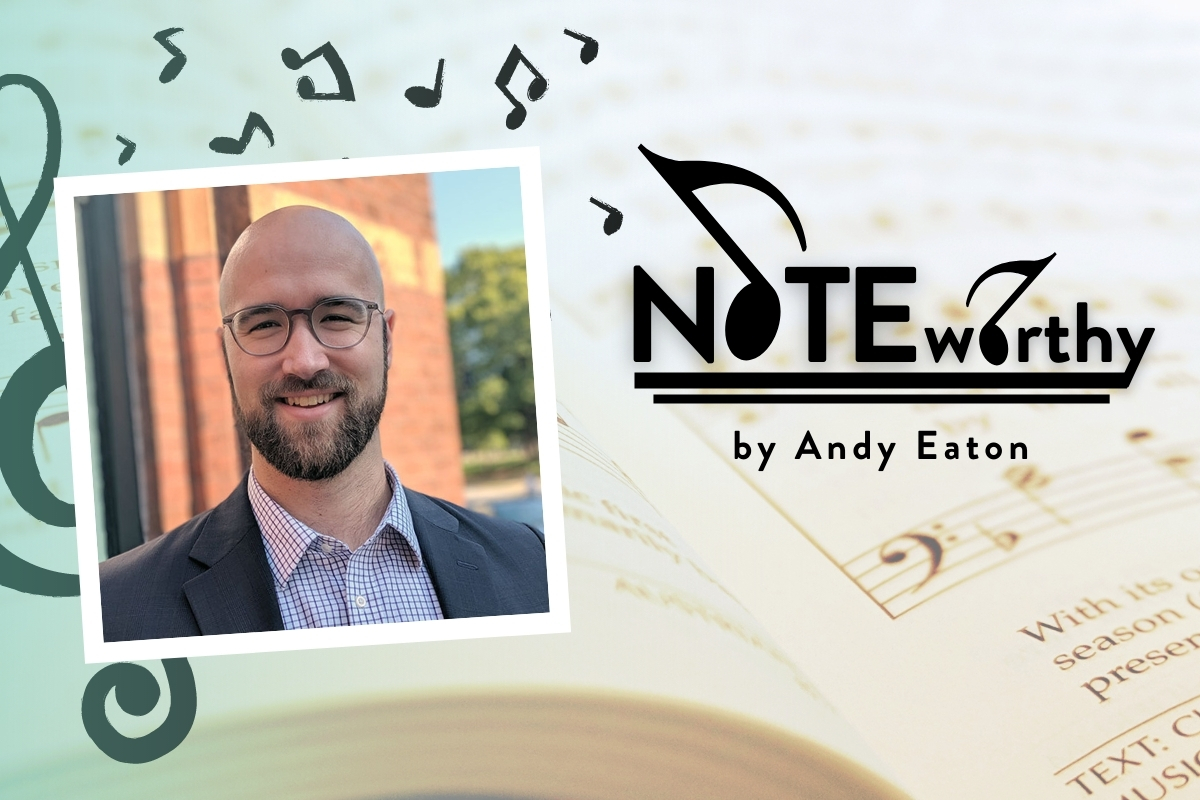“Easter Hymn” from Cavalleria Rusticana
Pietro Mascagni
Queen of heaven, rejoice, alleluia.
The Son you merited to bear, alleluia,
Has risen as he said, alleluia.
Pray to God for us, alleluia.Let us rejoice
That Our Lord is not dead,
And in glory
Has opened the tomb!
Let us rejoice
That Our Lord is risen again
And today is gone up
Into the glory of Heaven!
This week’s music comes from a somewhat peculiar place for this column – a secular opera. This wonderful full-bodied chorus is from Mascagni’s Cavalleria Rusticana, a popular one-act opera full of the usual operatic tropes of infidelity, duels, and – of course – someone dies. In fact, in the context of such a tragic opera, one could certainly argue that this bit of liturgy exists primarily as a thematic foil to the rest of the show.
Thinking of that literary idea, the foil (a character whose purpose is to accentuate or draw attention to the qualities of another character), let’s talk about Jesus and the Pharisees.
An idea I’ve known since my Vacation Bible School Days with a term that I’ve only recently come to know is the “Seven Woes of the Pharisees.” These are a list of Christ’s criticisms of the Pharisees found in three of the four gospels (Luke 11:37-54, 20:45-47; Matthew 23:1-39; Mark 12:35-40). To be totally forthright, Matthew actually lists eight woes, and Luke only six, but somehow I guess some theologians averaged it out and the Seven Woes are a thing nonetheless.
Taught of God but rejected God.
Preached God, but converted people to dead religion.
Taught that oaths made on sacred icons of the temple were worth more than oaths made by the temple/altar.
Taught the law, but followed only the minutiae of the law, not its undergirding tenets of justice, mercy, faithfulness.
Practiced performative purity and cleanliness, yet were full of unclean thoughts and greed.
Presented themselves as righteous because of scrupulous rule-following, but were full of wickedness.
Professed high esteem of dead prophets, claiming that they surely would not have persecuted them, yet persecuted the Messiah Himself.
After reading them all in a row like that, it becomes clear that it doesn’t really seem to matter much whether there are six, or seven, or eight woes, because no matter how many there are, all of those woes are Jesus criticizing the same thing. You don’t practice what you preach. Your external morality does not line up with your internal morality.
Back to the idea of the foil – the Pharisees are clearly opposite of Christ in that they are performatively legalistic, they are petty, performative, pretentious. But also in that they are of a high station and cling to their social strata so tightly, that they seldom ventured into the world of the poor, the needy, the unsightly.
Their idea of sanctification was so external, that “slumming it” with those who truly needed the love of God would have tarnished their whitewashed veneer.
Christ, on the other hand, almost exclusively met with the poor, the needy, the unsightly. He knew that goodness and purity is not determined by the polish of your façade, but on the sincerity of your love for your God and neighbor. In a way, the Pharisees serve as the greatest foil to Christ because they are so outwardly clean. The perception of others was never a concern for Jesus. In His time, before political photoshoots of handing out water bottles and performative acts of charity, it wasn’t really good PR for a Messiah to meet with the prostitutes, tax collectors, and lepers of the world, because “What would people say?” It’s funny we don’t talk about how many nasty rumors spread about Jesus in His time, because people were still people back then, and boy do we love some juicy gossip. Honestly, it would probably be easy to believe those rumors, too, because why else would Jesus spend time with these shady folks? They have no say or power in the world. Why reach out to them? Why love them?
For Christ, loving your neighbor was not something you did to “look holy.” In fact, as the Pharisees make abundantly clear throughout the gospels, much of Christ’s ministry looked to them decidedly unholy. And that is OK. Because Christ did not come to seem any certain way. Christ came to be what we needed Him to be. May we too surrender the idol of seeming for a slightly more messy Christ-like way of being.
“The King will reply, ‘Truly I tell you, whatever you did for one of the least of these brothers and sisters of mine, you did for me.’
“Then he will say to those on his left, ‘Depart from me, you who are cursed, into the eternal fire prepared for the devil and his angels. For I was hungry and you gave me nothing to eat, I was thirsty and you gave me nothing to drink, I was a stranger and you did not invite me in, I needed clothes and you did not clothe me, I was sick and in prison and you did not look after me.’
“They also will answer, ‘Lord, when did we see you hungry or thirsty or a stranger or needing clothes or sick or in prison, and did not help you?’
“He will reply, ‘Truly I tell you, whatever you did not do for one of the least of these, you did not do for me.’
Matthew 25:40-45
Andy Eaton
Director of Music
First Presbyterian Church

